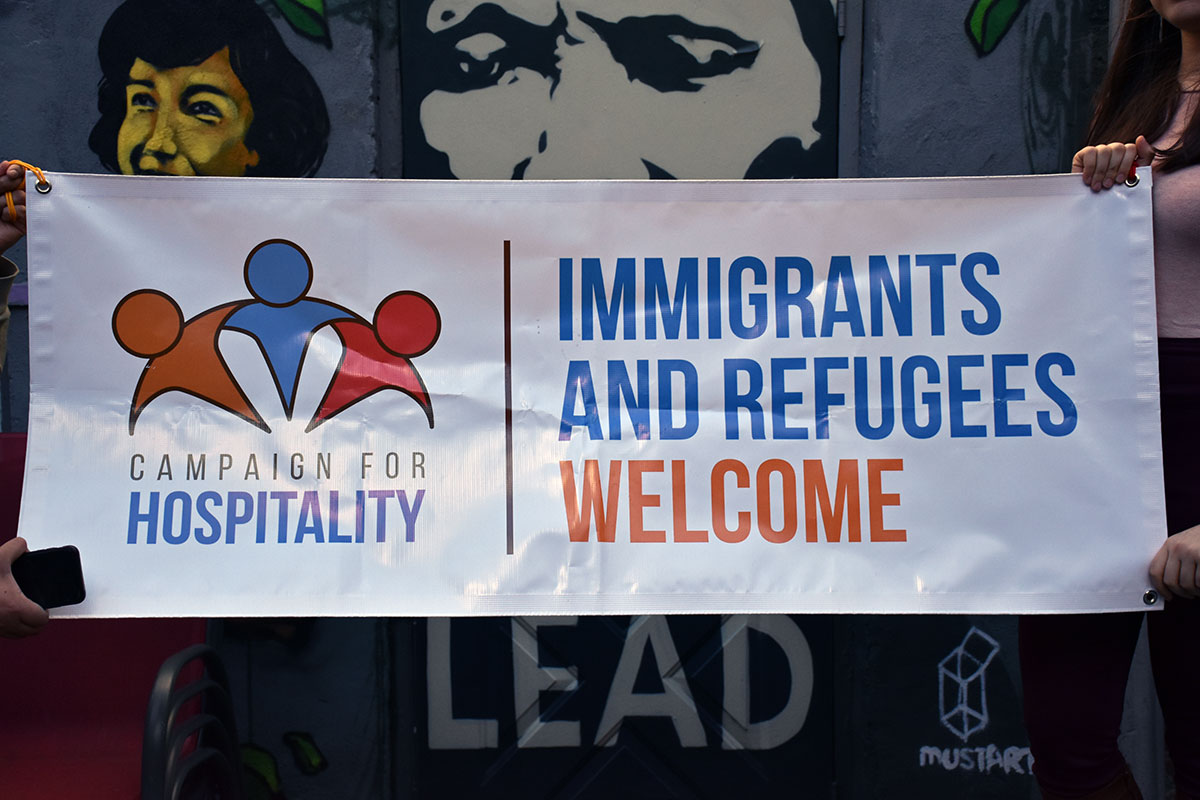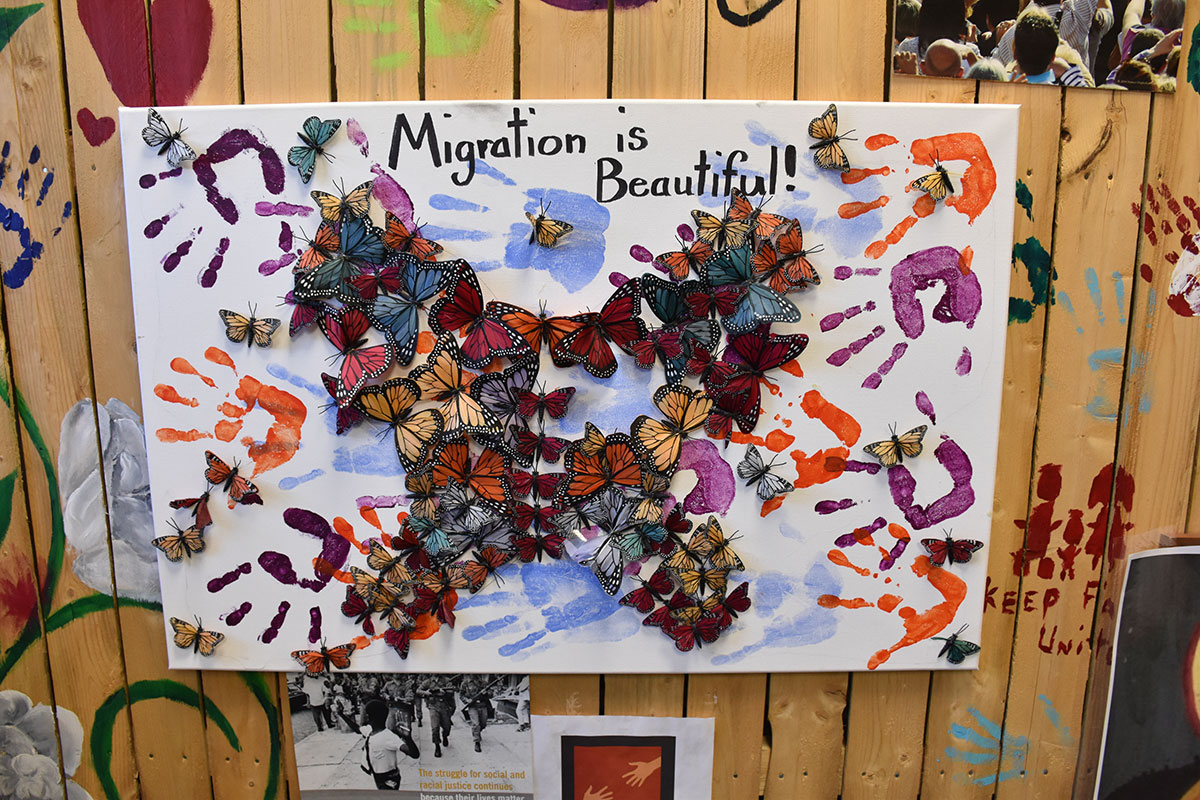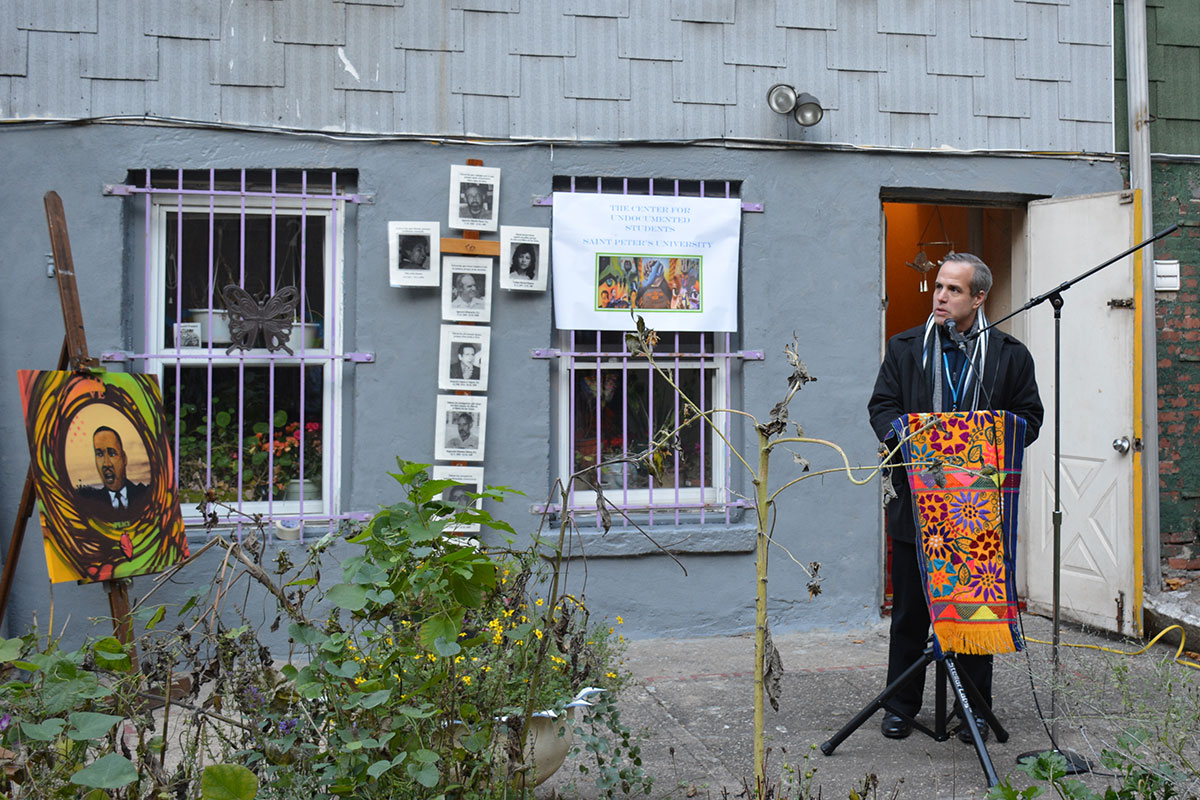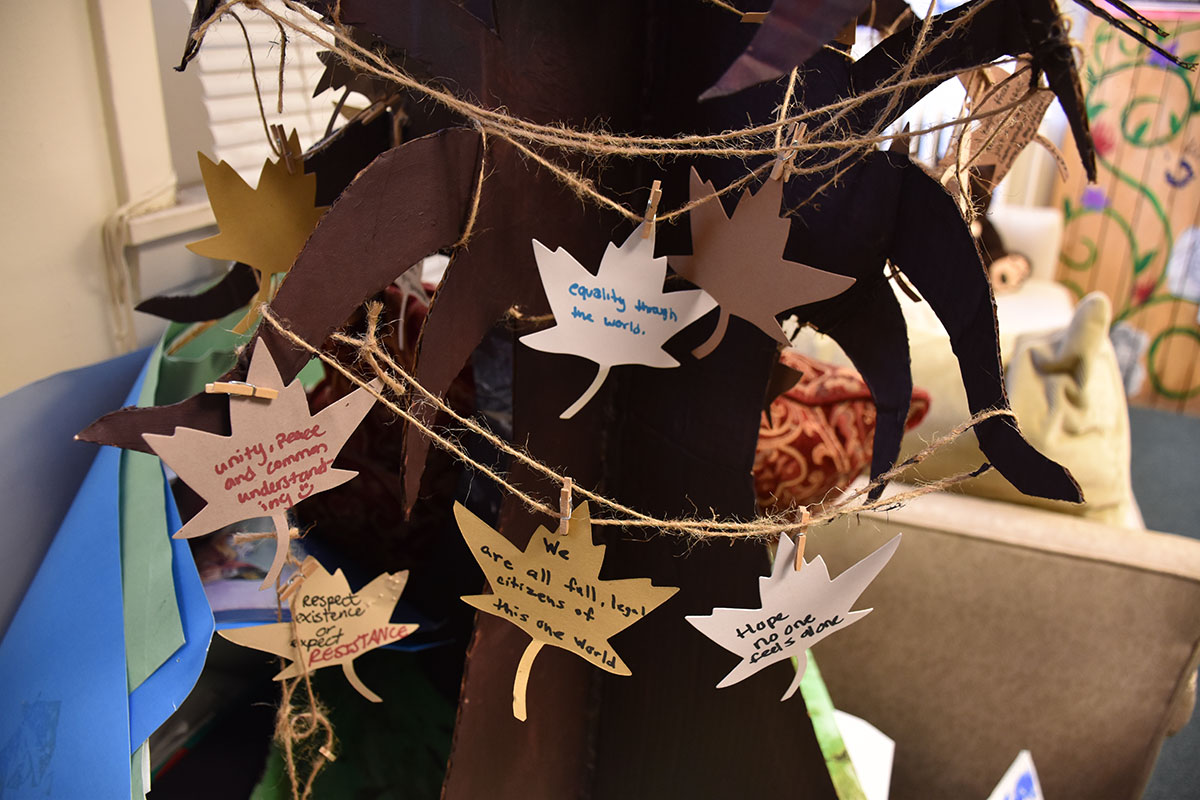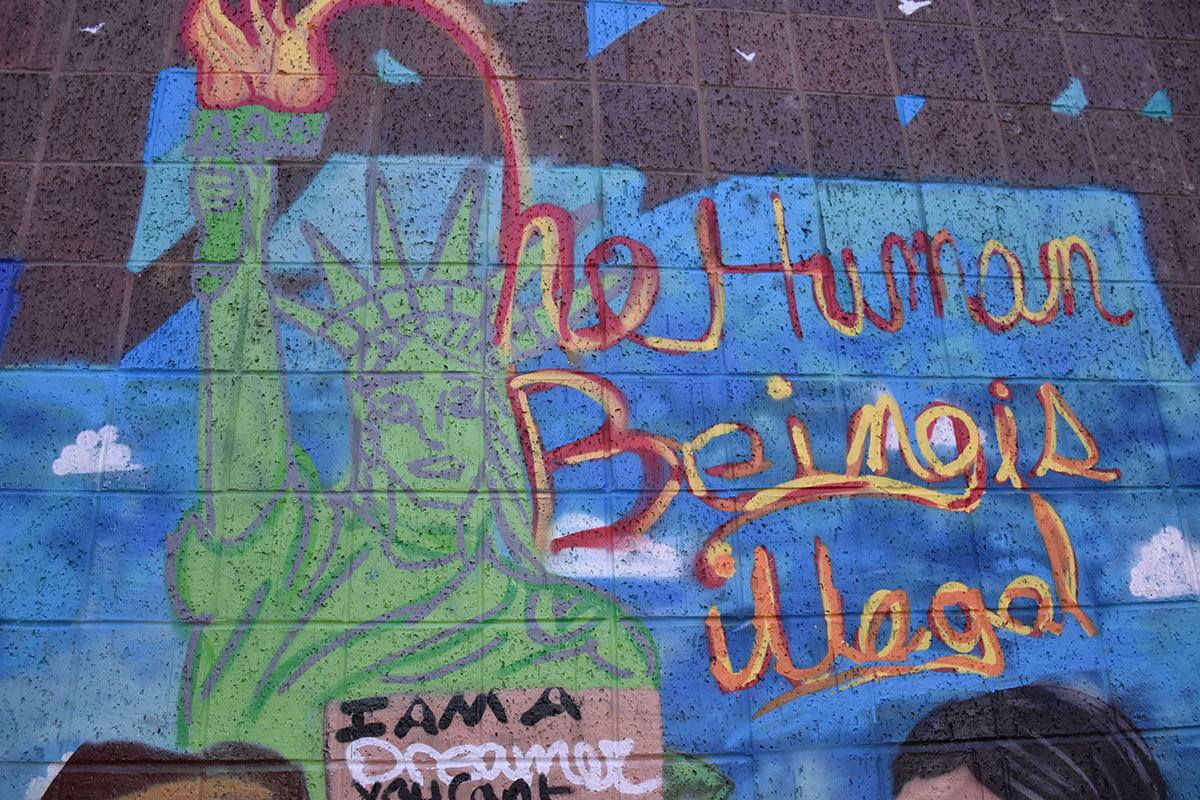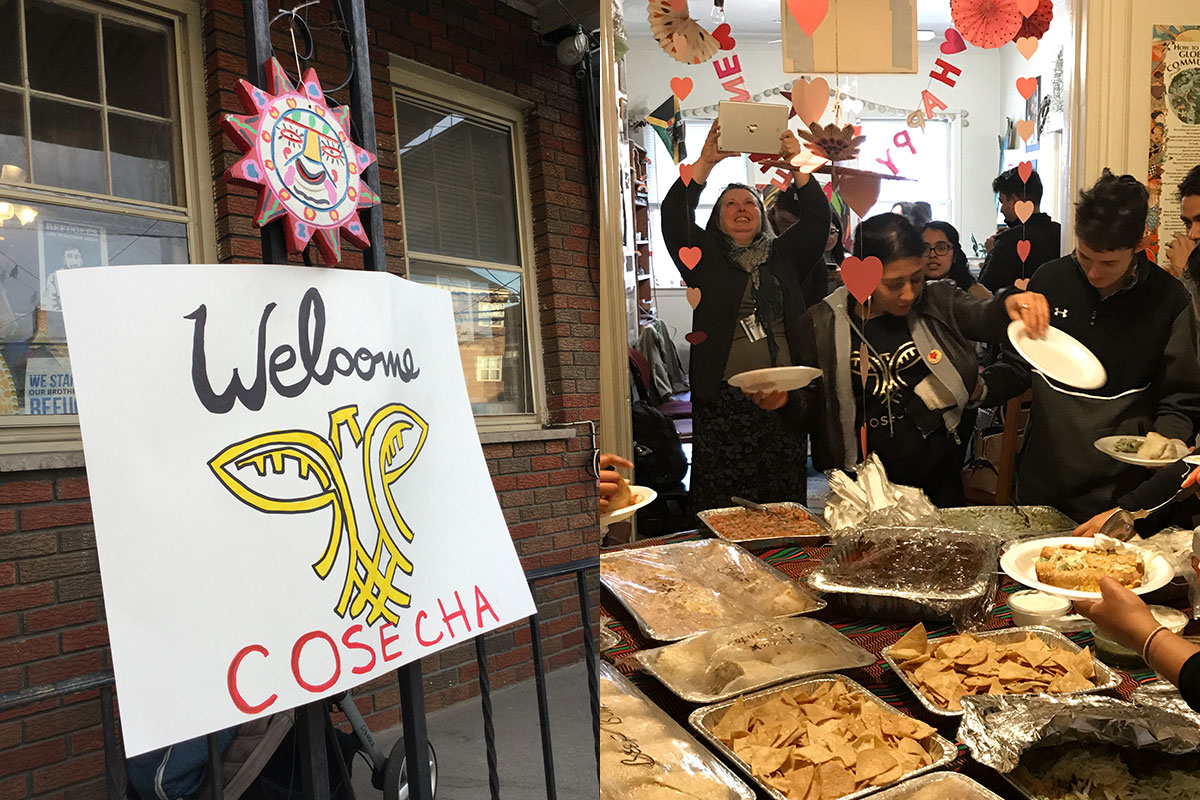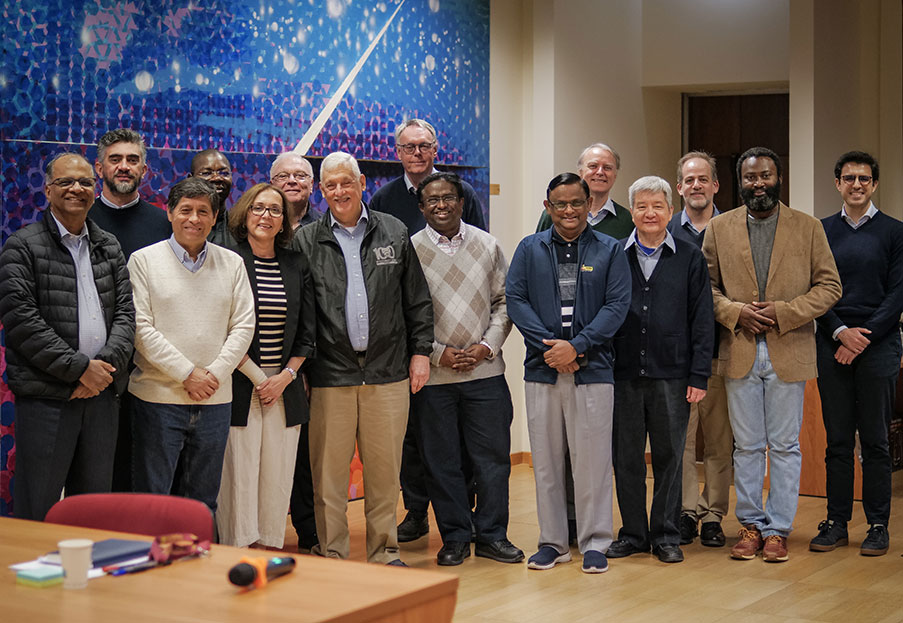Creating “undocu-joy”
The Center for Undocumented Students at Saint Peter’s University
It began, perhaps, in the early 2000s, with a sea of T-shirts that read “Why sleep when you can’t DREAM?” In a campus “sleep-out,” students challenged their peers and professors to pay attention to undocumented immigrant communities and the need for legislation that forges a clear pathway to citizenship (at that time called the DREAM Act, focusing on minors). We hear the echoes of these calls today, the acoustics taking on an ever sharper resonance, in the work of the Center for Undocumented Students (TCUS) at Saint Peter’s University in Jersey City, NJ.
The founding of TCUS was not unlike that of the
Catholic Worker as described by Dorothy Day: A community of students, faculty,
and staff sat around a table in our Social Justice House and spoke about how we
might better understand and tend to the needs of immigrant students at Saint
Peter’s. The work was kindled by student organizing efforts; scaffolded by a
research report conducted by our fellow Jesuit universities urging educators to
support undocumented students; concretized in the creation of the physical
space of TCUS; and sustained by immigrant youth leaders who guide, inform, and
ground these efforts.
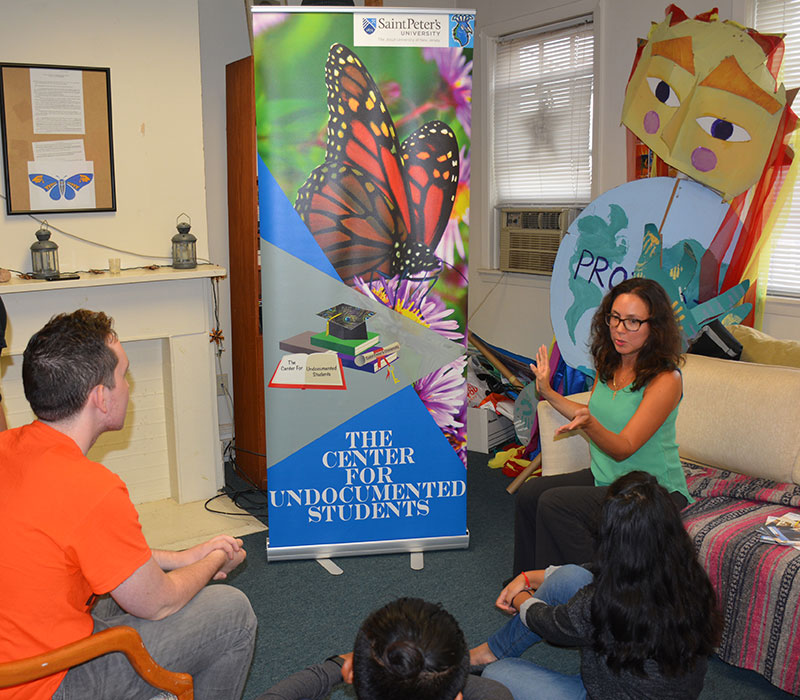
The resources available for TCUS are minimal by conventional standards. TCUS is situated on the second floor of the university’s Dr. Martin Luther King, Jr. - Kairos Social Justice House; donations fund a good part of its budget, and student leaders and faculty/staff volunteers primarily staff it. “La Casita,” as some of us affectionately refer to TCUS, houses an unparalleled richness, however, that is found in the students who lead it and in the Saint Peter’s community that loves its students. There is no more excellent a gift than love, and TCUS gives us the opportunity to practice on a daily basis the love for one another . regardless of one’s station in life - that Jesus spoke of and lived in his life.
The works of TCUS include educating staff and
faculty on ways to support undocumented students; helping TCUS students gain
access to financial aid; hosting legal clinics; facilitating healing circles;
co-sponsoring lectures, vigils, and social justice teach-ins; and offering
retreats through campus ministry.Perhaps
most important, TCUS offers a physical space of warmth and welcome,
unapologetically naming who we are serving. TCUS invites the larger Saint
Peter’s community to be bridge-builders rather than wall-builders. Our desire
is to invite more people to the table, share a meal, and build a beloved
community rather than to detain, deport, and exclude our immigrant brothers and
sisters.
Amidst all of the tragedy and catastrophe that has been inflicted on the community, our students remind us that we need to create and maintain space for what one DACAmented (DACA = Deferred Action for Childhood Arrivals) young woman expressed as “undocu-joy.” They remind us that we need to be courageous, creative, and daring, which they show by example. As in the case of the founding of TCUS, it is our students and recent graduates who are leading the way in this struggle for justice. Two of our recent graduates, for example, are lead organizers with the Cosecha community, a community that struggles for the dignity and protection of all immigrants. These two students have protested peacefully and, in so doing, risked arrest and deportation. They have also walked 250 miles to Washington, DC, engaged in weeklong hunger fasts, and orchestrated community support for families torn apart by detention and deportation. Current students are continuing this fight at the local level; along with the immigrant rights group Make the Road NJ, they are fighting for - and winning - access to state financial aid and, most recently, a statewide minimum wage increase.
These students - and many of our other students - are the civil rights
leaders of our day. Further, they powerfully exemplify the Christian imperative
of laying down one’s life for the sake of another. These efforts are not
because of TCUS but are attributed to the strength, endurance, and resistance
of immigrant youth organizers who push us all to do better, to remember why we
as educators are here, and to ensure that our commitments move beyond words or
kind intentions to fruitful action. Even, perhaps especially, when it’s not
personally or institutionally “safe.” To walk hand-in-hand with our students
and to accompany them is both joy-filled and humbling. We must persevere in
this work.
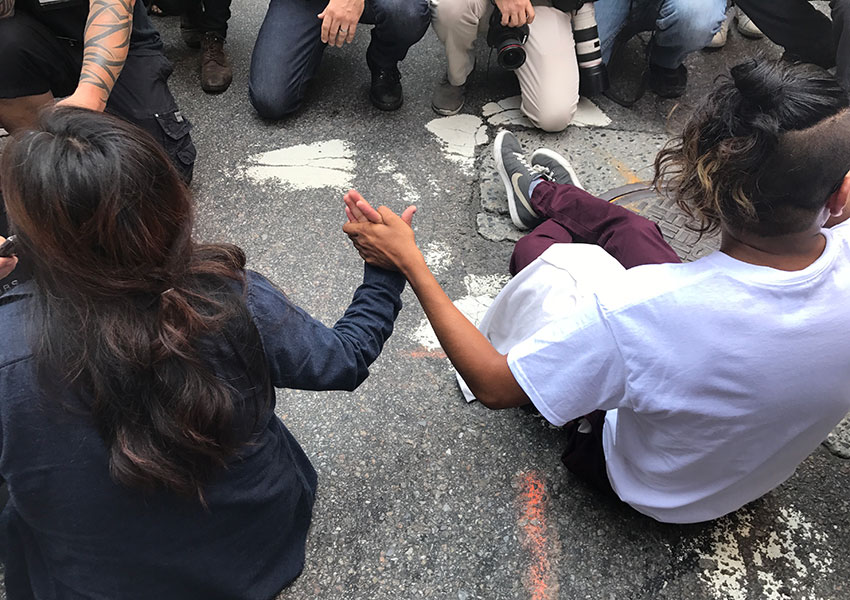
The final two lines of Fr. Daniel Berrigan, SJ’s
poem “Prayer for the Morning Headlines” are: “Seed Hope. Flower Peace.” Father
Berrigan well expresses what animates TCUS at Saint Peter’s University. Despite
modest means, the example set by our students shows us that the world does not
have to be a place of hatred, exclusion, violence, and impoverishment. We can
engage in works both large and small that show otherwise, which is to say, to
shine brightly, to share our gifts, talents, and resources, and to welcome all
who knock at the door.
[Article from "Jesuits - The Society of Jesus in the world - 2020", by Anna Brown and Jennifer Ayala]
